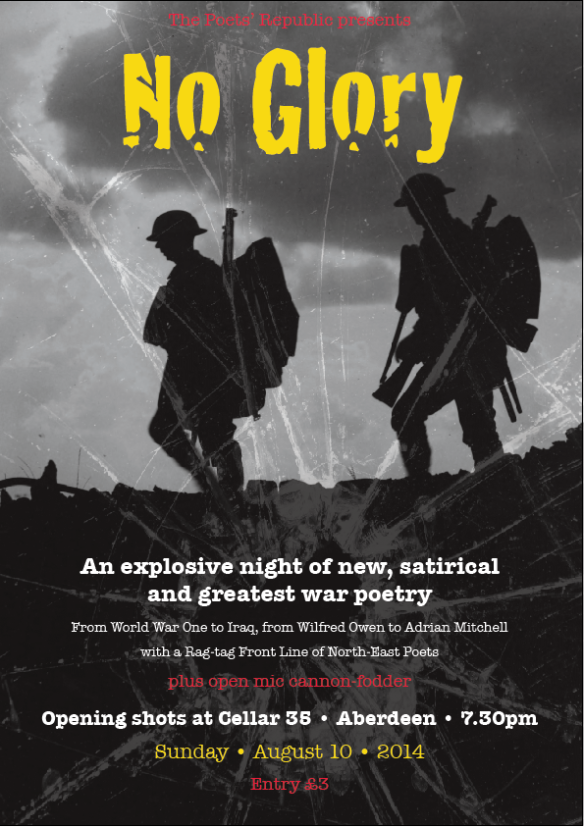POET PROFILES: Our new series of features begins with one of the most prolific and uncompromising Scottish poets of the last thirty years, Stuart A. Paterson.
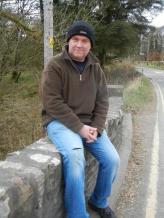
Joining The Poets’ Republic
What was it about the aims of The Poets’ Republic that made you submit to its first issue?
Me being me, I can’t exactly remember how I first heard there was to be a TPR, although I recall seeing a shout-out on social media.
Having been away from Scotland from 1998-2013, I’d published very little in that period, a stressful and time-consuming job occupying almost all of my time and energy. On returning to live in Galloway, after a few months the poetry returned to torment me. The Independence Referendum campaign was in full swing and I was living in an area of outstanding natural beauty. Politics, place and people preoccupied me and found their way into an ever-increasing pile of work. When I read The Poets’ Republic manifesto, I thought it sounded a good fit – We favour poetry that is irreverent, provocative and alive to great public debates – such as food banks, war, or independence – and shuns the insular or obscure.
I’ve been politically active since I began writing with any seriousness and I’d never imagined for one second the two should be mutually exclusive for any reason. TPR’s general ethos chimes very much with me. So they took three poems for Issue 1, hoyed one writ large onto the back page and invited me to the north-east for the launch event. On meeting Neil and Duncan in person and hearing what they had to say and had planned, I was pretty certain that TPR was here to stay and to help fill a gap largely missing from the Scottish lit scene since the 1990s – that of the non-cosy non-cliquish voice from the political, social and geographic margins.
Poetry used to be the voice of the people. How can we regenerate people’s understanding of, and enthusiasm for, poetry as a vehicle for social change?
Poetry’s not an elitist or removed form of expression: it never was. In fact it formed the vanguard of social and political agitation in ages and epochs long disappeared and, from those times, much of what’s been left to us has been in the form of proclamations and stories in poetry. Up until fairly recently, poetry gave a widely read voice to cause and dissent in our society, from Burns to Sassoon to Kirkup to Warshan Shire. It still can and does, yet it’s hugely receded in the public mind as a valid form of mass expression. There are many reasons for this, I believe – too many to go into here. All the more reason for those who write poetry to reclaim and re-launch it as an accessible mode of meaningful expression, not just a hobby for semi-retired professionals wanting to tell us about their gardening or academics opining on subjects few know about with references only they or other poets can get. There are lots of things going on in the land to help this along, (such as) many more young folk writing poetry of meaning and pushing it into venues which encourage public participation. Poetry needs to be accessible to the audience it’s trying to reach. Let’s have poetry saying things in the national papers, on TV, in Parliament, in football grounds, shops and bus shelters. And in schools, where a distrust of poetry is fostered early on because kids are MADE to read stuff they don’t get from writers they’ll never meet.
This all takes money, sure, but the will has to be there first. How can you make people care about poetry if it’s only written by, and read to, other poets? My experience is that folk will like and enjoy poetry live or on the page if it speaks to them and not to itself. It’s a collective responsibility all poets ought to share, in my opinion. You can write twee, clever-clever poetry about your garden or your favourite obscure painter all you like, but don’t expect folk beyond your artistic sphere to care and don’t be surprised when the funding dries up and it’s just you and another four mumbling versifiers outside Drumshoogle Library at 7pm on a Wednesday looking for the janny to open up to non-existent queues of the eager public. You’re not the answer, you’re part of the problem.
This place that we call Scotland
What do you consider to be the most significant social issue in Scotland today?
Independence. It affects everything socially. We’ve only a partial hand on the tiller and even then the tiller’s still part of a bigger vessel we’ve no way of controlling and which ploughs on on its own course, irrespective of the cries from below decks. From this springs the inability to at least try to implement the kind of society I want to see; where austerity caused by political mismanagement isn’t used as an excuse for cuts to services for the most vulnerable in society. By having full fiscal control, there’d be no excuse for a left of centre Scottish government, of whatever political hue, in not fully addressing, and redressing, the increasing issues around social landlord control, public housing, child poverty, land ownership, unemployment and industry, pollution, an ageing population, rural depopulation and many others. The ‘hard’ Brexit, and the refusal of the Tories to include the governments of Scotland, Wales and Northern Ireland in shaping it, only further highlights the fact that Westminster cares not a fuck for the collective voice of Scotland when it goes against it. As has been shown time and time again around the world, breaking colonial and political hegemony almost always leads to a more democratic society capable of shaping its own future, even if it undergoes some initial upheaval and strife. In Scotland, we’ve the social and financial basis to get a better head start than many before us.
The Poets’ Republicans
What one other poet would you recommend to readers of The Poets’ Republic?
If there was one poet I’ve come across whom I’d signpost to others, it’s Francisco X. Alarcon. Sadly, he died in 2016 aged only 61. He was a Chicano poet and activist living in California and Mexico. His poetry, purely and simply, speaks directly to me. I find his work accessible, clear, and poignant to the point of heartbreaking. As a gay man born of Mexican immigrants, he was right in the social melting pot and never once shirked his responsibility to use poetry as a medium to highlight the social injustices, prejudices and bigotry he suffered and saw happening around him, in Spanish, English and Nahuatl. Here’s a link to a sample of his work and info on who and how he was: https://www.poetryfoundation.org/poems-and-poets/poets/detail/francisco-x-alarcon
And this links to my personal favourite of his tender, angry, and humane poems:
https://www.poetryfoundation.org/poems-and-poets/poems/detail/53880
Who should submit to The Poets’ Republic?
Whoever wants to, but especially those who can craft a relevant, accessible poem which speaks to an audience beyond poetry, in a way which doesn’t exclude or patronise readers.
Up close and personal…
In what public space or media would you most like your work to appear?
I’m grateful to anyone, anywhere who sees fit to publish stuff I write, or highlight it in any medium. I’ve a poem engraved on a snazzy big sun-dial on the gable end of a remote farm house in Nithsdale. Hardly anyone’s seen it (including me) but it’s nice to know it’ll be there long after I’m gone for anyone who comes across it. And I’d quite like Kilmarnock Football Club to feature a copy of my poem ‘Paper Roses’ in one of their match programmes. And my poem ‘Naw’ (The Poets’ Republic, Issue 1) to appear on the back of every single polling card produced for IndyRef2. Too ambitious? Nah.
What is the best piece of writing advice you have been given so far?
‘Don’t be a pseud’ (Willie Neill, 1992)
What do you do when you’re not writing?
Walk the coastline and the hills. Pub quizzes. Meet a fellow poet for a catch-up, maybe a sharing of work, always a few pints (we’re currently setting up a new poetry mag so that’ll focus us on the latter). I’m a movie buff, have an interest in cryptozoology, sometimes become involved with badgers and get to a live music gig whenever I can. I’m pretty big on world music, folk fusion and trad. And I get up the West coast whenever I can. And butchers’ shops.
Where can we find you online?
https://www.facebook.com/patersonpoetry/
http://www.scottishbooktrust.com/profile-author/108562
http://www.indigodreams.co.uk/stuart-a-paterson/4589983970
Any upcoming gigs or events?
Hay-on-Wyre and StAnza have overlooked me yet again, the bastards. I’m headlining on February 26th at The Bakehouse, Gatehouse of Fleet. Be good to see folk there, although the buses back to the Central Belt are shit. And apparently another The Poets’ Republic reading some time in the Spring or Summer. I look forward to, and embrace, the inevitable carnage of that. And I’ve another collection of Galloway poems out from Indigo Dreams, this summer, Looking South, as well as a Gaelic-Scots collaboration volume with Mark Spencer Turner.
Great Stuart, thanks!
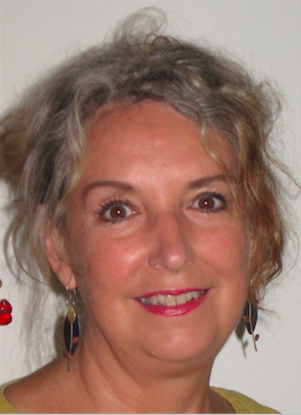


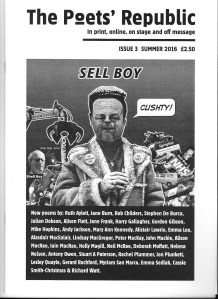
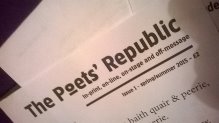 Send us your wee gems – your poems – for Issue 6 of The Poets’ Republic. We’re inviting submissions from April 1st to the end of May. This edition of the magazine will be launched at the Edinburgh Fringe Festival on August 24th and 25th with four readings/shows, under the banner of The Poets’ Republic – Unleashed, at the Scottish Poetry Library. All poets included in the magazine will be invited to read, and there’ll also be big open mic slots – so come along, please, buy a copy of Issue 6 newly inked off the press, and make your voices heard.
Send us your wee gems – your poems – for Issue 6 of The Poets’ Republic. We’re inviting submissions from April 1st to the end of May. This edition of the magazine will be launched at the Edinburgh Fringe Festival on August 24th and 25th with four readings/shows, under the banner of The Poets’ Republic – Unleashed, at the Scottish Poetry Library. All poets included in the magazine will be invited to read, and there’ll also be big open mic slots – so come along, please, buy a copy of Issue 6 newly inked off the press, and make your voices heard.